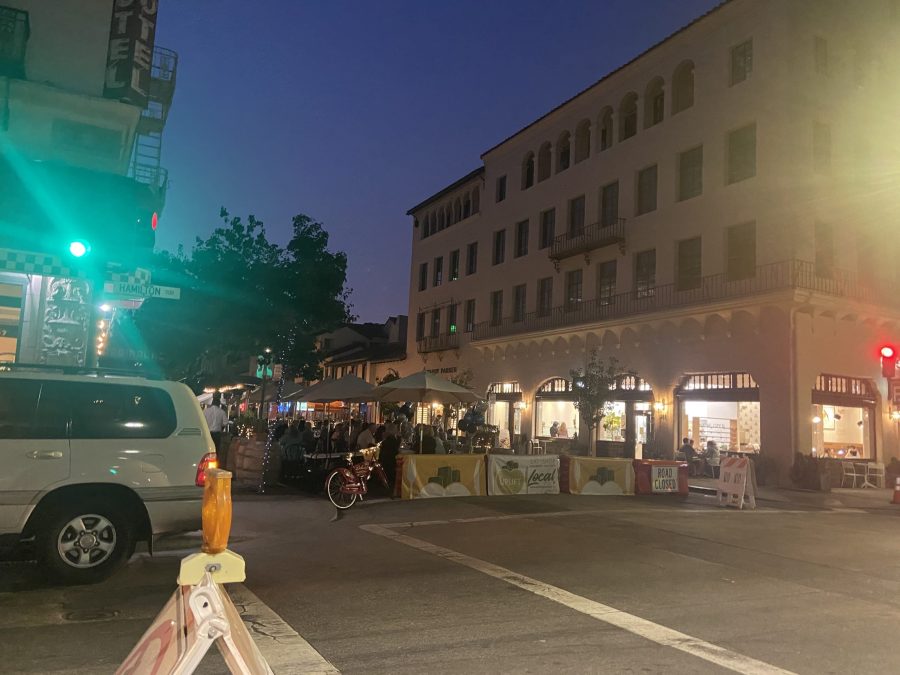Since the start of the pandemic, many of Palo Alto’s commercial streets have been closed off to cars as part of the city’s Uplift Local program.
By shutting down these streets, the city created outdoor dining areas in an attempt to help local restaurants and businesses operate under pandemic restrictions.
While the city was supposed to open its streets as soon as the state lifted COVID-19 guidelines, the Palo Alto City Council voted in June to delay the opening of a few major commercial streets from early July to at least September, due to the overwhelming support of Palo Alto residents and businesses.
Although California is fully reopened, the Campanile thinks Palo Alto ought to keep California Avenue, Ramona Street and University Avenue blocked off from cars to promote dining at local restaurants, cultivate a biker and pedestrian-friendly environment and create a safe outdoor eating space for Palo Alto’s residents to enjoy.
In a staff report, City Manager Ed Shikada said these street closures have benefitted the restaurants that line University, Ramona and California Avenues. Shikada also said the foot traffic on restaurant-heavy University Avenue has resulted in those businesses recovering much faster after the lockdown. To maintain these pedestrian-reliant benefits, it is imperative these streets remain closed to cars.
In addition, leaving these roads closed promotes walking and biking as opposed to driving. The Campanile has previously commended Palo Alto’s attempts to make the city biker-friendly, and keeping the streets closed would further these efforts.
By leaving the streets closed, Palo Alto would not only be giving visitors and employees a safe space to walk and bike but also a much more pleasant one as well.
Furthermore, time restrictions, fees and permit requirements in the City’s public garages have been waived until Sept. 30, and employees have been encouraged to utilize these garage spaces — leaving the available curb spaces on side streets for commercial pick-up and drop off. If Palo Alto leaves the streets closed, they should maintain these privileges for employees, perhaps through distributing special parking permits.
Leaving these streets closed also maintains walkable areas that Palo Alto’s residents can appreciate.
These closed streets are often full of friends and families eating, talking, walking and biking, and we think opening these roads to cars again diminishes the social element of our city that we all need now more than ever.
San Francisco’s Board of Directors unanimously approved a plan on July 13 to keep their Shared Spaces program — a program similar to Palo Alto’s Uplift — permanent, with the support of the majority of San Franciscans.
San Francisco mayor London Breed said the program “brought back life and excitement to our neighborhoods during an incredibly challenging time.”
Just like San Francisco, by making the Uplift Local program permanent, Palo Alto will be creating a safe, friendly environment benefitting all of its residents.

